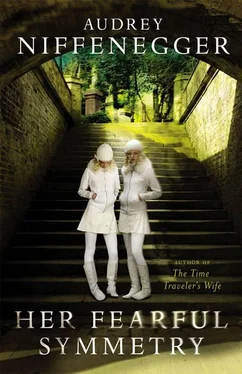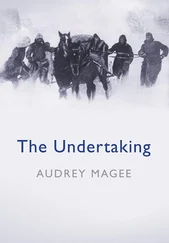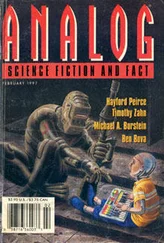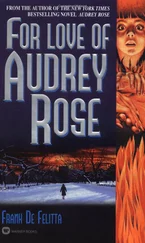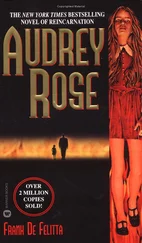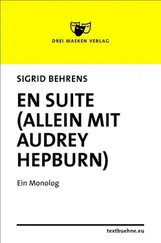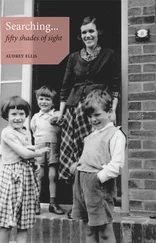In the next room was another desk, but this one was occupied by a neat, elderly secretary and an enormous beige computer. The office was done in a style that Elspeth had always referred to as Early Thatcher. To the twins it seemed oddly modest; it was their introduction to the British proclivity for making certain things important and shabby, expensive and self-deprecating all at once. The secretary ushered them into another office decorated in the same style but with more books, and said, “Please sit down. Mr. Roche will be with you directly.”
Mr. Roche, when he arrived, was startling, even Dickensian, but not in the way the twins had imagined. He was an old man. He had been quite small to begin with and had shrunk with age; he walked using a stick, slowly, so that the twins had plenty of time to consider his comb-over, his prodigious eyebrows and his well-made but loose-fitting suit as he crossed the carpet and took each of their hands in turn, gently. “The Misses Poole,” he said, in a grave voice. “It is a great pleasure to meet you both.” He had dark eyes and a prominent nose. Julia thought, He looks like Mom’s gnome cookie jar. Elspeth had sometimes called him Mr. Imp, though never in his hearing.
“Let’s sit here at the table, shall we?” he said, moving incrementally. Valentina pulled out a chair for him and then the twins stood and waited while he eased himself into it. “It’s so much nicer and more informal than the desk, don’t you think? Constance will bring us some tea. Oh, thank you, my dear. Now then, tell me all about your adventures. What have you done since you’ve arrived?”
“Slept, mostly,” said Julia. “We’re pretty jet-lagged.”
“And has Robert Fanshaw been to see you?”
“Um, no. But we just got here yesterday,” Julia said.
“Ah, well, I expect he’ll come by today, then. He’s very eager to meet you.” Mr. Roche smiled and looked at each of them in turn. “You are astonishingly like your mother’s side of the family. If I didn’t know better I’d think I was sitting with Edie and Elspeth, twenty years ago.” He poured them each some tea.
Valentina asked, “You knew them then?” Mr. Roche was so ancient that she would have believed it if he claimed acquaintance with Queen Victoria.
He smiled. “Dear child, my father was your great-grandfather’s solicitor. I dandled your grandfather on my knee when he was tiny, and when your mother and aunt were small they used to sit on that carpet and play with blocks whilst I talked to their parents, just as the three of us are talking now.” The twins smiled back at him. “It’s a pity that Elspeth is no longer here to greet you. But I can tell you that she was excited about your coming to live here, and she has provided for you quite handsomely. I hope the terms of the will are clear?”
“We have to live in the flat for a year before we can sell it,” said Julia.
“Mom and Dad can’t visit us,” said Valentina.
“No, no,” said Mr. Roche. “I certainly hope your parents will come and visit you; that isn’t what Elspeth meant. She only stipulated that they aren’t to be in the flat.”
“But why not?” said Valentina.
“Ah.” Mr. Roche looked regretful. He spread his gnarled hands, tilted his head. “Elspeth often kept her own counsel. Have you asked your mother? No, I imagine she wouldn’t want to discuss it.” Mr. Roche watched the twins as he spoke. It seemed to Julia that he was expecting some kind of reaction from them. “People can be odd about their wills. All sorts of strange things get put into wills, often with unintended effects.”
He waited for them to say something. The twins shifted in their chairs, embarrassed by his scrutiny. Finally Julia said, “Oh?” But Mr. Roche only lowered his eyes and reached for a folder.
“Now then,” he said, “let me show you how your money is invested.” The twins found the next half hour confusing but thrilling. They had made money babysitting, and had spent one summer as counsellors at a Girl Scout camp in Wisconsin, but they had never imagined possessing the sums Mr. Roche spread before them.
“How much is there altogether?” Julia asked.
“Two and a half million pounds or so, if we include the value of the flat.”
Julia glanced at Valentina. “We can live on that pretty much forever,” she said. Valentina frowned.
Mr. Roche shook his head very slightly. “Not in London. You’ll be surprised at what things cost.”
Valentina said, “Can we work here?”
“You don’t have the proper visas, but we can certainly apply. What sort of work do you do?”
Valentina said, “We aren’t sure yet. But we’re planning to go back to school.”
“Actually, we’re done with school,” said Julia.
Mr. Roche looked from one to the other and said, “Ah.”
“We were curious,” said Julia. “Why did Aunt Elspeth leave everything to us? I mean, we’re really grateful and all, but we don’t understand why she never came to see us but she left us her stuff.”
Mr. Roche was silent for a moment. “Elspeth was not a very-nurturing sort of woman, but she did have a strong family feeling.” He added, “I’m afraid I really couldn’t say why, but here we are.”
Couldn’t say, or wouldn’t say? the twins wondered.
“Can I answer any other questions?”
Valentina said, “We don’t exactly understand how the heating works in the apartment. It was kind of cold in there last night.”
“Robert can help you with that; he’s a very practical chap,” Mr. Roche said. “Do say hello to him for me, and ask him to give me a ring, there are one or two things we ought to go over.” He bid them goodbye. Julia turned back as they were leaving and found him standing with both hands on his stick, watching them with a bemused expression.
When they got back to Vautravers the building was quiet and cheerless. In the front hall Julia said, “Maybe we should just knock on his door.”
“Who?”
“This Robert Fanshaw guy. We could ask about the heat.”
Valentina shrugged. Julia knocked; she could hear the sound of a television playing faintly in the flat. Julia waited and then knocked again, louder, but no one came to the door. “Oh well,” she said, and they went upstairs.
M ARTIN PUT the phone down on the bed. The bed was an island. Around the bed was a sea of contamination. Martin had been crouching on the bed for four hours. Luckily there were survival tools there in bed with him: the telephone, some bread and cheese, his worn copy of Pliny. Martin wanted very much to leave the bed. He needed to pee, and he was hoping to get some work done today. His computer sat waiting for him in the office. But somehow Martin sensed, he knew, that there had been a hideous accident in the night. The bedroom floor was covered with filth. Germs, shit, vomit: someone had got into the flat and smeared this horrible slime over the floor. Why? Martin wondered. Why does this always happen? Is this possible? No, it’s not real. But what can I do about it?
As if he had asked the question out loud, an answer came to him: Count backwards from a thousand, in Roman numerals. Touch the headboard while you do it. Of course! Martin began to comply, but faltered at DCCXXIII and had to start again. As he counted, he wondered, with a separate part of his brain, why this was necessary. He lost track again, started again.
The telephone rang. Martin ignored it and tried to focus on counting. It rang three more times, then the answering machine picked up. Hello, this is Martin and Marijke Wells. We’re not here now. Please leave a message. Beep. A pause. “Martin? Come on, pick up, I know you’re there. You’re always there.” Robert’s voice. “Martin.” A click. Martin realised that he had lost track of his counting again. He threw the telephone across the bedroom. It smashed against the wall and began to buzz. Martin was horrified. Now he would have to replace the phone. It was on the floor, contaminated. The light in the bedroom was afternoon light, slanted. He had failed to escape from the bed. Once again, he had allowed his madness to rule him.
Читать дальше
